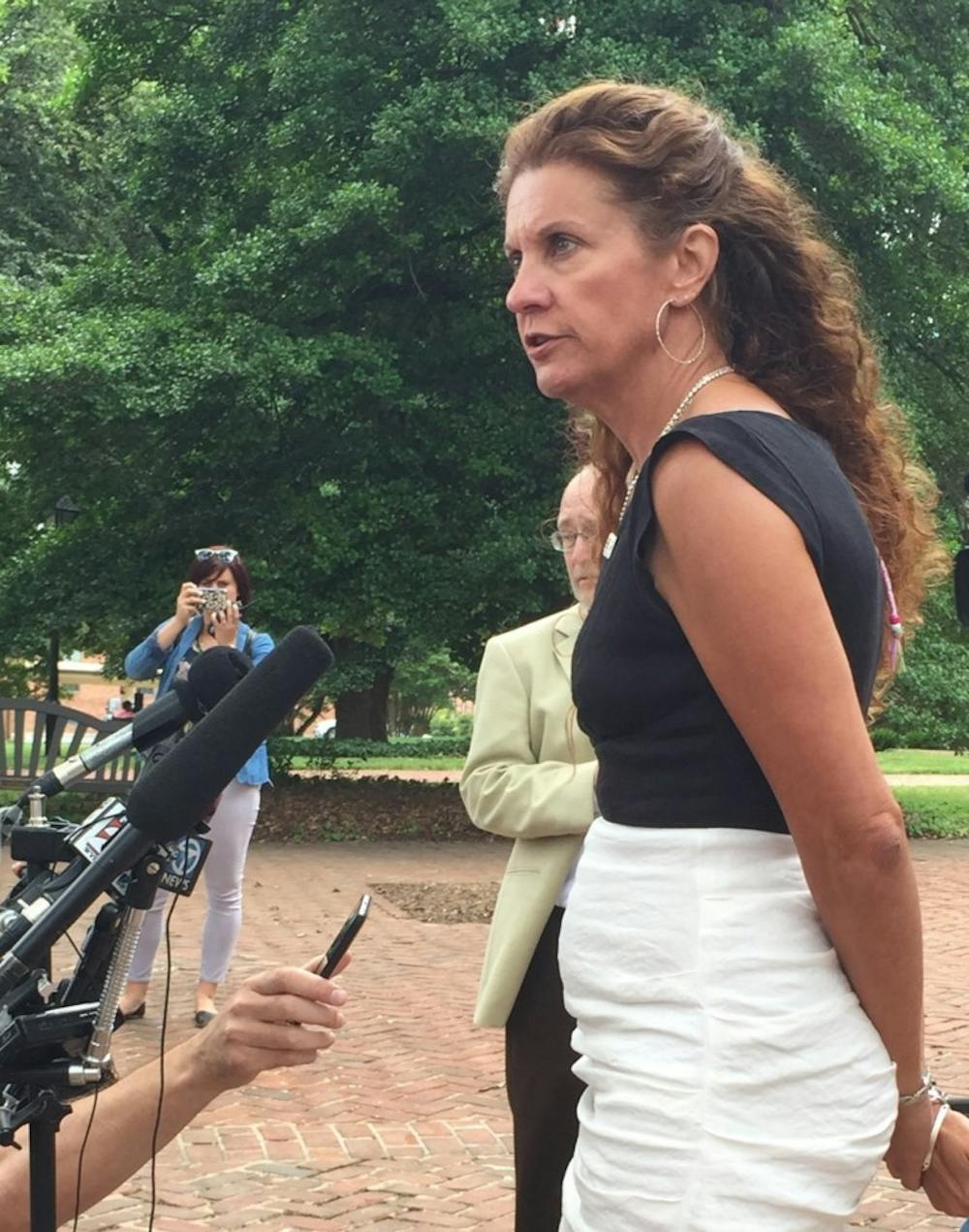Albemarle Commonwealth’s Attorney Denise Lunsford responded Thursday to 12 motions filed by Jesse Matthew’s defense team July 29, asking the Commonwealth to deny many of them.
Matthew faces capital murder charges for the kidnapping and murder of University student Hannah Graham. His trial is currently scheduled to begin July 5, 2016.
Motions filed by Matthew’s defense team include requests to bar Hannah Graham insignias from the trial, to allow the defense counsel to privately examine case evidence, for the prosecution to provide a bill of particulars specifying the aggravator for a capital murder charge and a gag order — which would prevent the prosecutor from making comments about the trial outside of court.
Lunsford called many of the requests “exceptionally broad,” asking for them to be dismissed.
Lunsford said the Commonwealth is aware of small pins bearing the letters “HG,” and stated in her motion to dismiss that remembrance of the victim in this case is protected by the First Amendment and is important to members of the community.
“A bar on all ‘tokens or insignia that show support for a party’ is exceptionally broad and encompasses forms of expression that pose no risk of prejudice to [the] Defendant,” the motion read.
Lunsford further argued for the denial of the motion to allow the defense to privately view the evidence, explaining that the defense would be allowed to leave the room containing the evidence, confer in private and return, as well as photograph any evidence used in the trial.
“[The] Defendant has identified no legal support for his allegation of a right for his counsel to view the evidence against him in private, and there is a strong public policy interest in having a sworn law enforcement officer familiar with the case present, thereby maintaining the integrity of the evidence,” the motion read.
The requested bill of particulars goes far beyond what is provided for by law, Lunsford said in the motion, and is an attempt to bind the Commonwealth to a particular theory of the case at an early stage in the proceeding.
“The Commonwealth is not required to commit to a theory of punishment by a bill of particulars,” the motion read. “Sufficient facts were alleged in the indictment in this case such that [the] Defendant is aware of the crime for which he is charged and no bill of particulars is required.”
In calling for a denial of a gag order, Lunsford said while a prosecutor has the duties of seeking justice and protecting a defendant’s right to a fair trial, they also have obligations to the community they serve and must balance these duties.
“The Commonwealth has no intention of making or permitting its agents to make public statements that would hinder a fair trial in this matter,” the motion read. “However, the Commonwealth should be allowed to address questions and concerns from the media that do not infringe upon [the] Defendant’s right to a fair trial.”
These motions are to be received Aug. 20 by Judge Cheryl Higgins, the presiding judge in the case.







